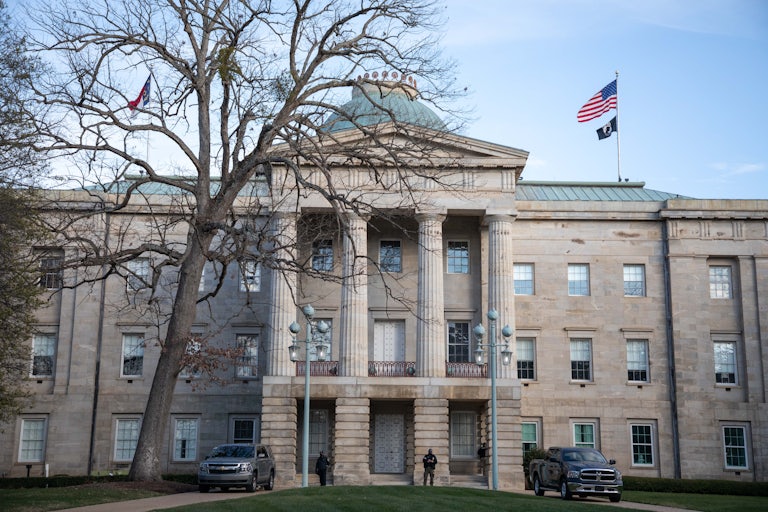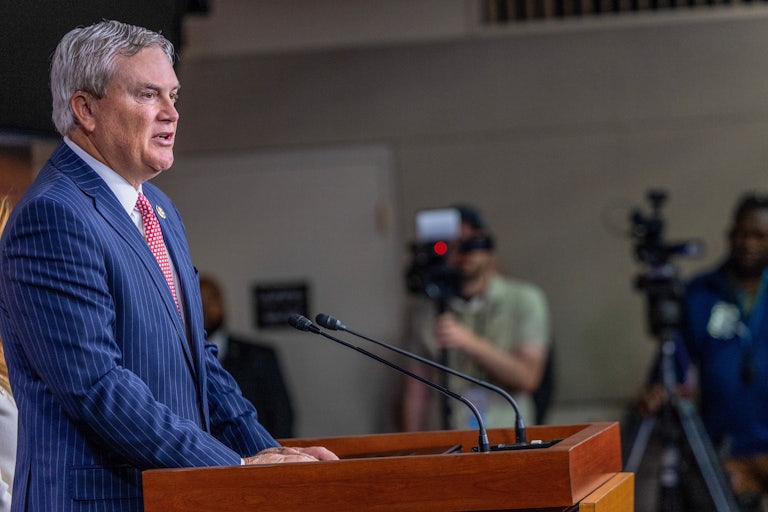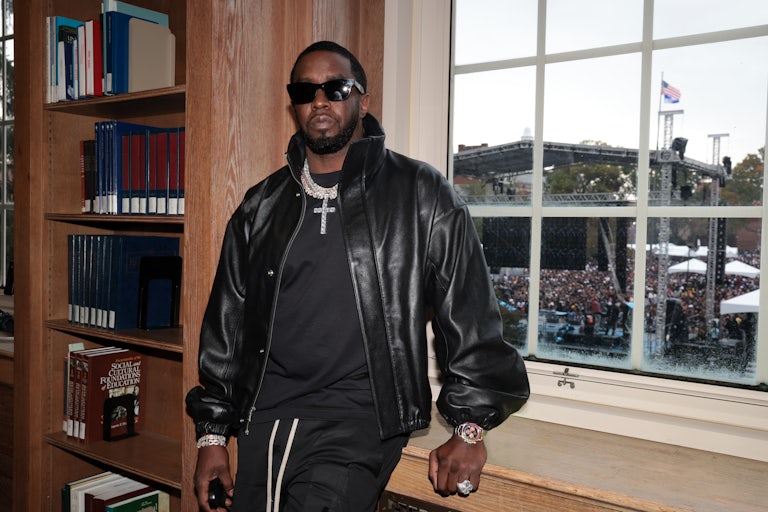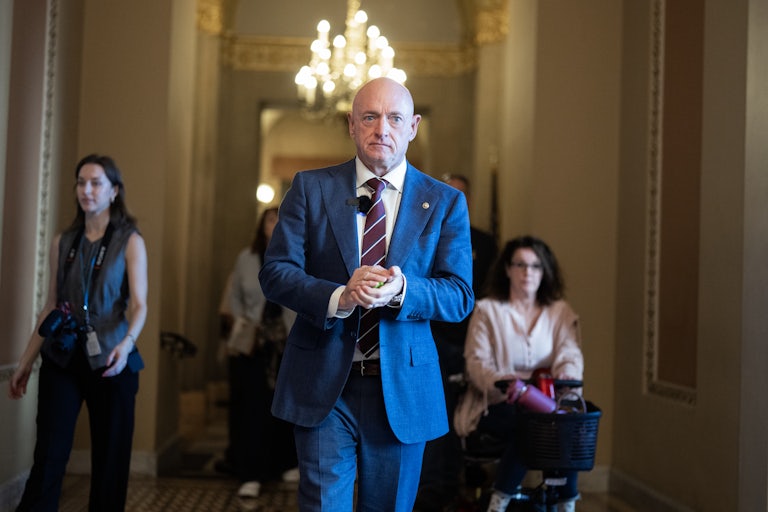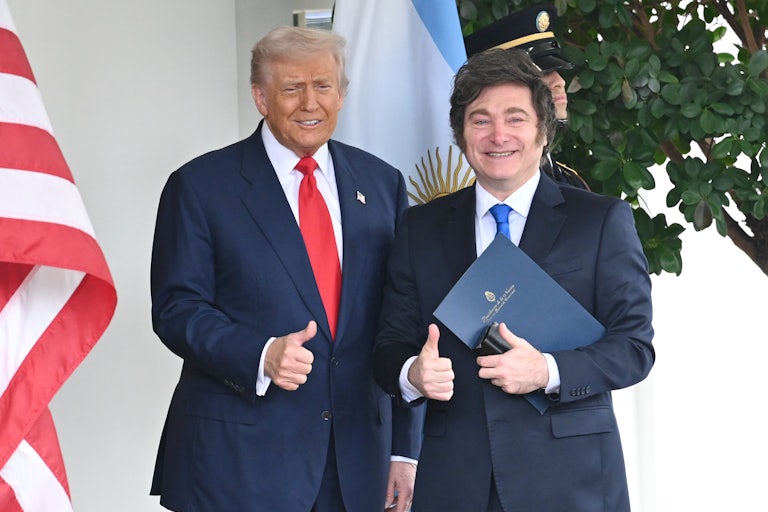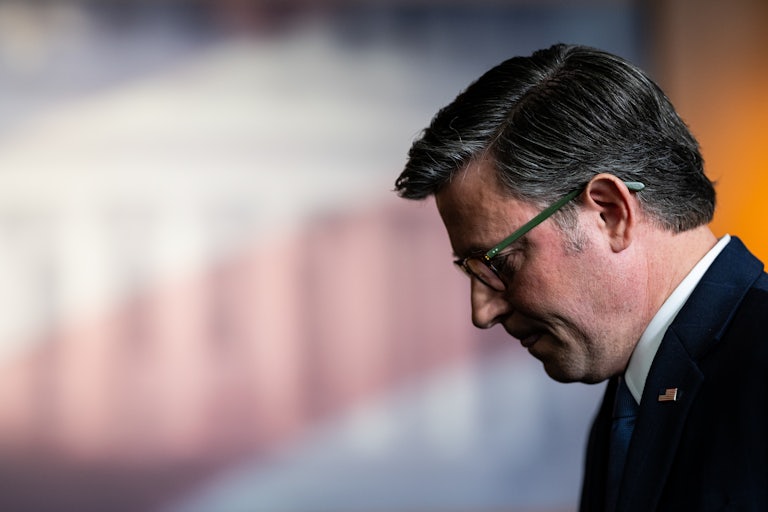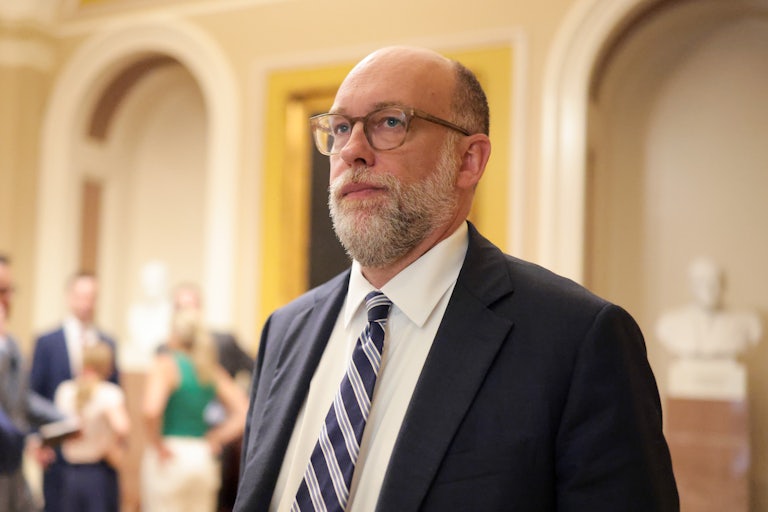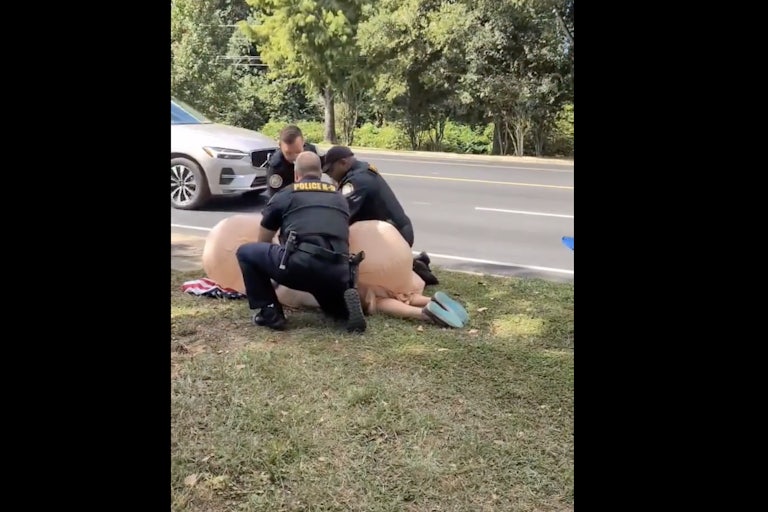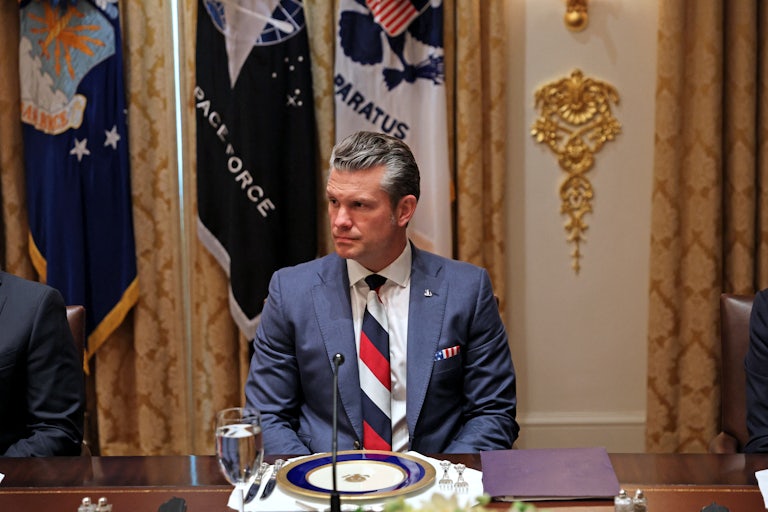Mike Johnson Says No Kings Protest Is Worse Than Threats on Jeffries
Apparently, a peaceful protest is just as bad as—or worse than—a threat on a Democrat’s life, per the House speaker.
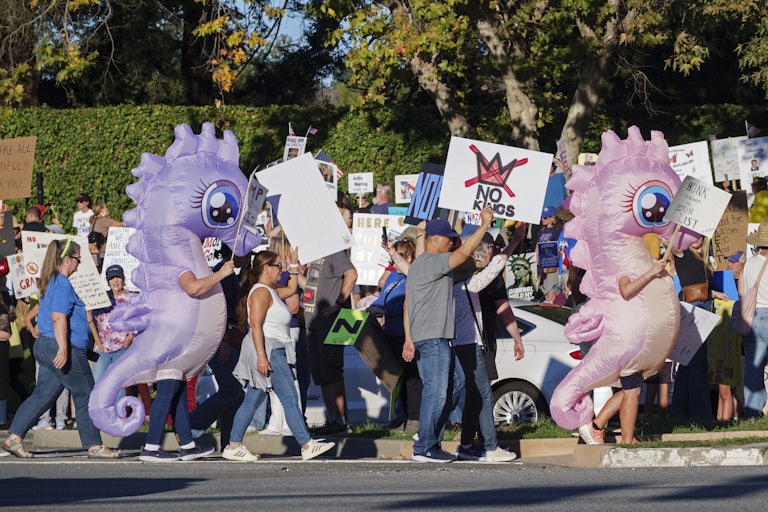
Republicans are still playing the blame game on the subject of political violence—even as a pardoned January 6 rioter attacks one of their colleagues.
House Speaker Mike Johnson brushed off assassination threats against Minority Leader Hakeem Jeffries Tuesday, claiming that—despite the wannabe assassin’s conservative politics—the left is still at fault.
When asked directly about the incident during his daily shutdown press conference, Johnson initially said that he was completely unaware of the plot to “eliminate” Jeffries at New York City’s Economic Club Monday.
“Terrible. That’s the first I’ve heard of that. I don’t know anything about it,” Johnson said. “But anybody who threatens to kill any political official, we denounce it, absolutely.”
Christopher Moynihan, a 34-year-old from upstate New York, was arrested Saturday for threatening to kill Jeffries.
Moynihan was convicted in 2022 for participating in the Capitol riot. Video evidence captured him breaking through fences, entering the Capitol, and rifling through documents in the Senate Gallery. During the riot, Moynihan said, “There’s got to be something in here we can fucking use against these scumbags,” according to court documents. Moynihan was also depicted standing behind the Senate well alongside Jacob Chansley, better known as the QAnon Shaman.
He was sentenced to nearly two years in prison in 2023 but was prematurely released, thanks to a blanket pardon from Donald Trump that freed 1,500 January 6 rioters on his first day back in office.
Moynihan is the first pardoned Capitol rioter to be rearrested over alleged political violence, but he’s not the only January 6er to run afoul of the law since they were granted clemency. In February, former Proud Boys leader Henry “Enrique” Tarrio was arrested by Capitol police after a woman accused him of attacking her. In May, Zachary Alam was arrested for allegedly breaking into a home in Virginia.
However, given the chance to elaborate on his statement about Moynihan’s recent attack, Johnson chose to throw the responsibility back at America’s ideological left.
“I will tell you this, the violence on the left is far more prevalent than the violence on the right,” Johnson said Tuesday. “The assassination culture that’s been advanced now—this is the left, in almost every case that is advancing this, and not the right. Let’s not make this a partisan issue, you don’t want me to go there.
“The rhetoric that you saw on display Saturday, we highlighted yesterday, it plays into this. There are people that get triggered—there are deranged people in society when they hear elected officials participating in a rally that was paid for by [George] Soros and sponsored by Communists, with signs and placards and mantras that were repeated that, ‘We should bring death to fascist politicians.’ They call every Republican a fascist now,” Johnson said, referring to the peaceful No Kings protests that took place across the country this past weekend.
Jeffries said in a statement Tuesday that he is “grateful to state and federal law enforcement for their swift and decisive action to apprehend a dangerous individual who made a credible death threat against me with every intention to carry it out.”
Political violence is a phenomenon that persists in and defies both major parties, failing to fall neatly into a convenient, sellable narrative that can be repackaged for voters or donors. In truth, recent spikes in political violence have harmed both public figures (Charlie Kirk, Melissa Hortman, etc.) and regular Americans alike.
Historically, political violence has been far more common from the right, and 2025 marks the first time there has been a significant spike in violence from left-leaning individuals in more than 30 years, though it still remains at a much lower level than historical levels of violence carried out by right-wing attackers, according to the Center for Strategic and International Studies.
The only common denominator in all recent political violence is wide public access to guns, a detail that sets the United States far apart from the rest of the developed world.
